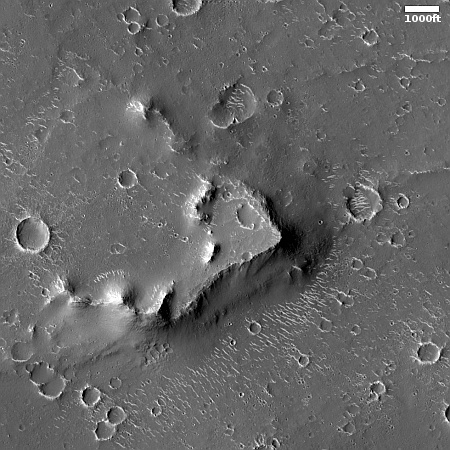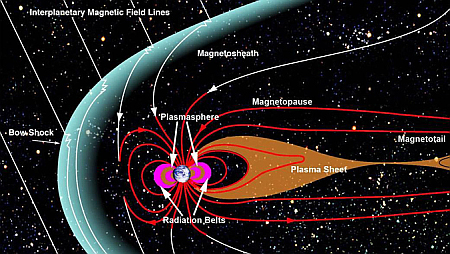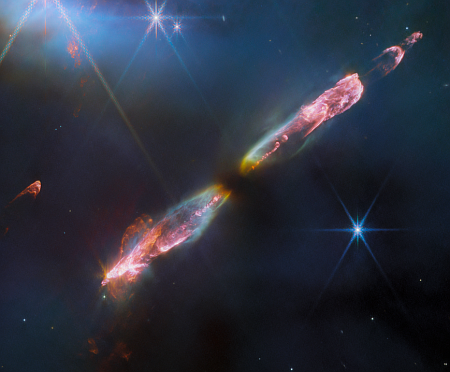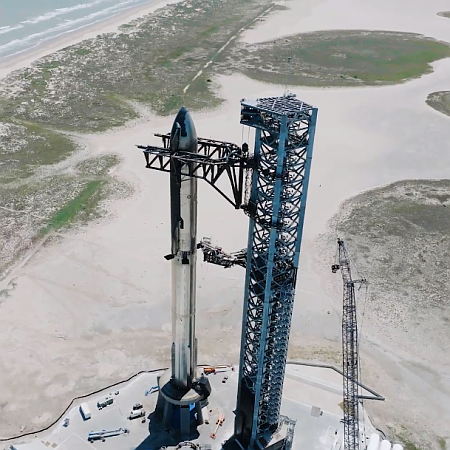Two galaxies merging
Cool image time! The picture to the right, cropped, reduced, and sharpened to post here, was taken by the Hubble Space Telescope as part of a survey project to photograph the entire Arp catalog of 338 “peculiar galaxies,” put together by astronomer Halton Arp in 1966. From the caption:
The larger galaxy (in the left of this image) is an extremely energetic galaxy type known as a Seyfert galaxy, which house active galactic nuclei at their cores. Seyfert galaxies are notable because despite the immense brightness of the active core, radiation from the entire galaxy can be observed. This is evident in this image, where the spiraling whorls of the whole galaxy are readily visible. The smaller companion is connected to the larger by a tenuous-seeming ‘bridge’, composed of dust and gas. The colliding galactic duo lie about 465 million light-years from Earth.
Note that if you ignore the blue whorls of the left galaxy, the two bright cores of these merging galaxies are about the same size. As it is unclear how long this merger has been on-going, it is possible that the galaxy on the right, in circling the left galaxy, drew out those whorls and that tenuous bridge. Other scenarios are also possible, however, such as the galaxy on the left stripping and scattering the arms of the galaxy on the right.
Cool image time! The picture to the right, cropped, reduced, and sharpened to post here, was taken by the Hubble Space Telescope as part of a survey project to photograph the entire Arp catalog of 338 “peculiar galaxies,” put together by astronomer Halton Arp in 1966. From the caption:
The larger galaxy (in the left of this image) is an extremely energetic galaxy type known as a Seyfert galaxy, which house active galactic nuclei at their cores. Seyfert galaxies are notable because despite the immense brightness of the active core, radiation from the entire galaxy can be observed. This is evident in this image, where the spiraling whorls of the whole galaxy are readily visible. The smaller companion is connected to the larger by a tenuous-seeming ‘bridge’, composed of dust and gas. The colliding galactic duo lie about 465 million light-years from Earth.
Note that if you ignore the blue whorls of the left galaxy, the two bright cores of these merging galaxies are about the same size. As it is unclear how long this merger has been on-going, it is possible that the galaxy on the right, in circling the left galaxy, drew out those whorls and that tenuous bridge. Other scenarios are also possible, however, such as the galaxy on the left stripping and scattering the arms of the galaxy on the right.













